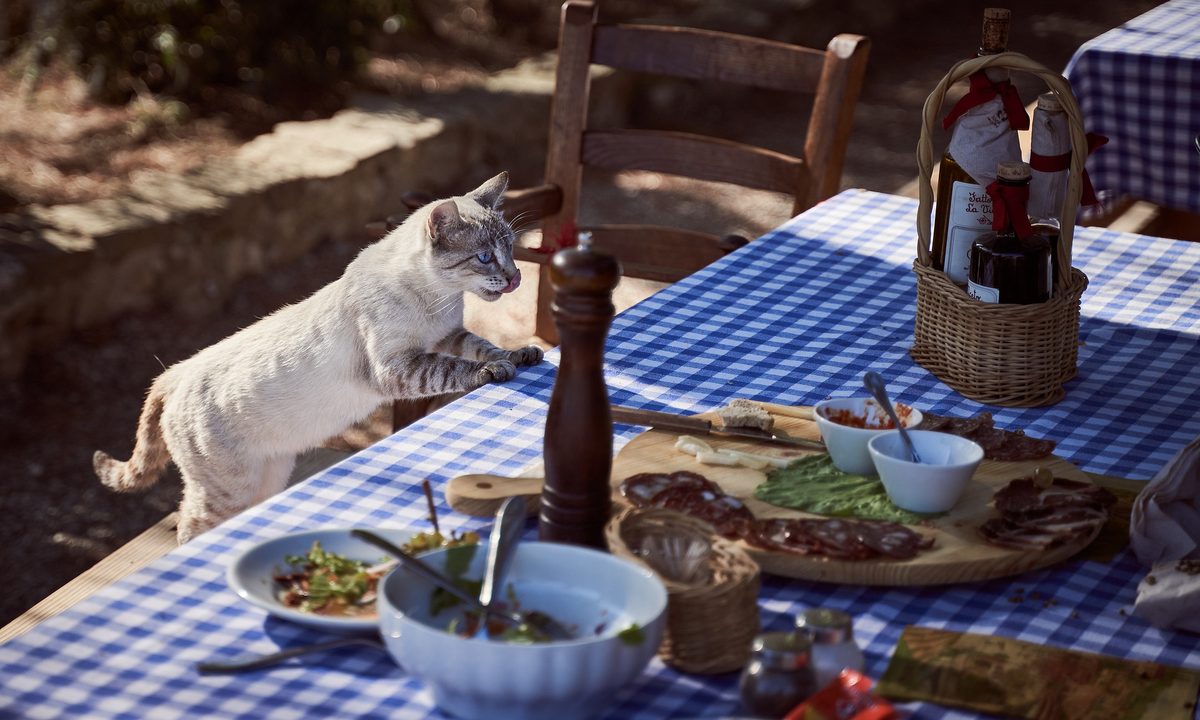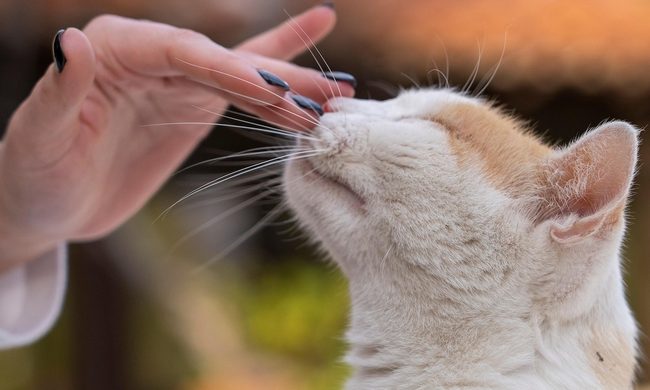When you’re cooking dinner, does your cat stand in the kitchen sniffing at the air? Pets often want to share some food off our plates, but it’s important to make sure that any snack you give them is safe for them to eat. Occasional treats of people food for cats are fine, and they may even help expand your kitty’s palate. But there are also some foods you definitely should not feed your cat. While it’s safest to stick to traditional cat food and cat treats, here’s some people food cats can eat and a few foods they should not.
Is it OK for cats to eat people food?
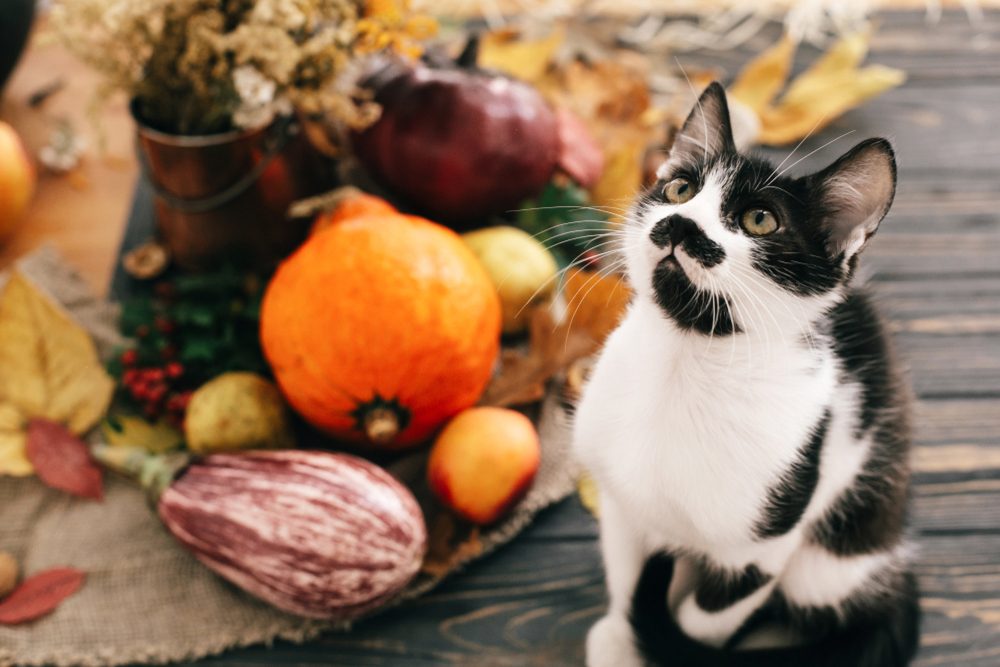
Human food should never replace their main meals because cat food has been specifically formulated for felines. Instead, any table scraps need to supplement a balanced diet. Even if everything in their bowl is fine to eat, they might wind up getting too much fat or not enough protein from your dinner. Too much of any one thing could also upset their tummy.
Remember that you want about 90% of their daily intake to consist of healthy cat food with only 10% left for treats. As long as you stick to doling out safe people food in moderation, they’ll love to munch on your fare now and then.
Proteins
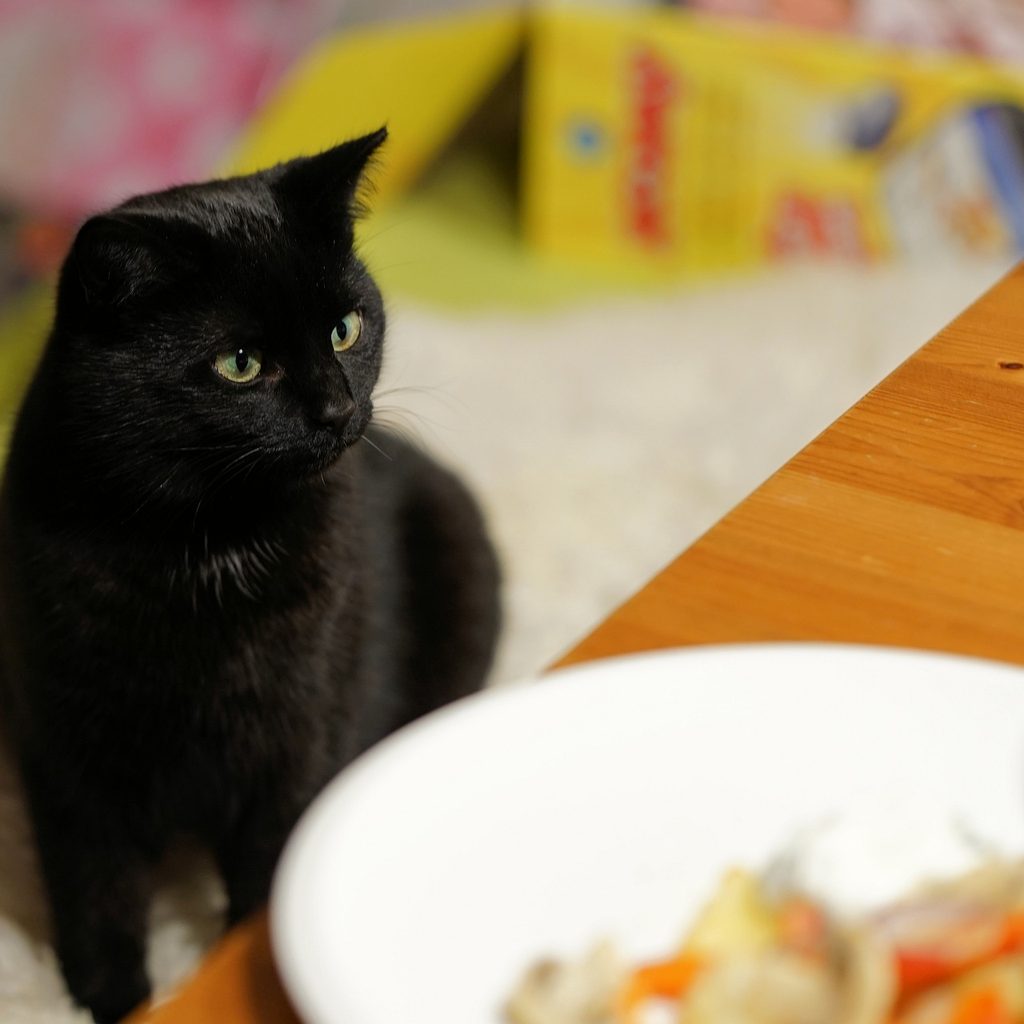
So, what can cats eat? Cats are meat eaters, and most cat food contains meat like chicken, turkey, or beef. If you’re cooking up dinner, you can give your cat a taste as long as you haven’t cooked the meat in butter or oil, and you haven’t yet seasoned it. When feeding Whiskers, give them only cooked meat, never raw. It’s also important to remove all bones, if you’re sharing chicken for example, since those cooked bones could splinter and harm your cat.
Fish is another great source of protein. It’s also full of omega-3 fatty acids, which support eye and heart health and help cats with arthritis. Salmon is particularly ideal since it’s already incorporated into many cat food formulas. If you feed your cat fish, allow them only cooked fish — no sushi! Just like when feeding meat, it’s important to remove any fishbones before giving it to your animal.
Eggs also are full of protein, and your cat can enjoy them in small amounts. Keep this treat to cooked eggs that have been scrambled or boiled without any added fats.
Veggies and fruits
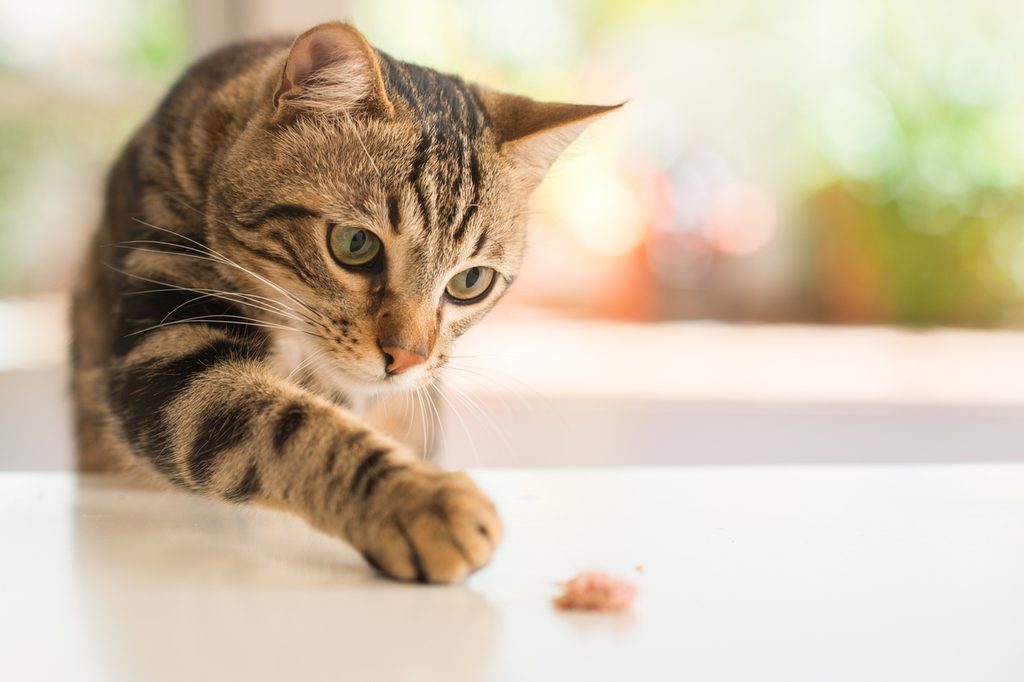
Cats can eat vegetables, but the picky ones won’t be too excited by the prospect. Peas (raw or cooked) and spinach are both safe. You can also feed your cat pumpkin, which is high in fiber. When offering pumpkin, use canned, pureed pumpkin — not pumpkin pie mix. You can add the puree to your cat’s food to promote regular stool.
You have your choice of fruits that are safe to share with your kitty, though again, they may not go for all of them. Apples contain high amounts of fiber and vitamin C, and they’re safe if fed without the skins and seeds. Blueberries contain vitamin A and C, and you can give a few to your cat each day. Bananas are also good for cats.
Foods to avoid
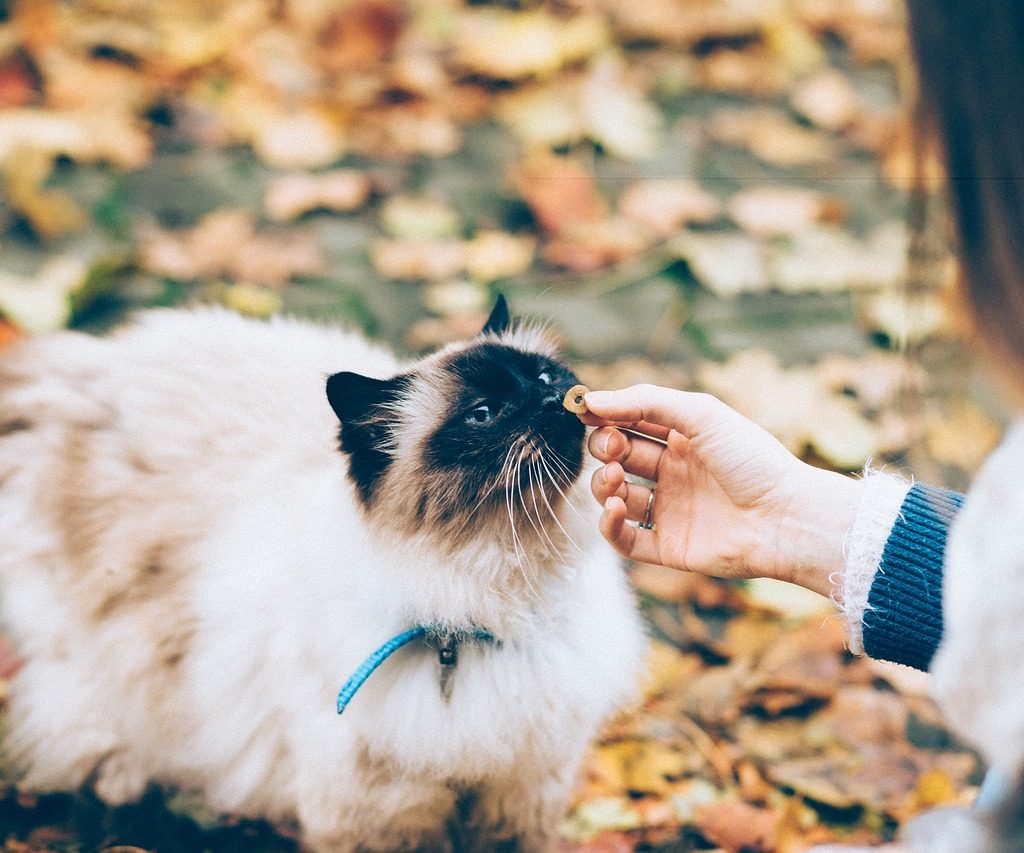
While it can be nice to share a snack with your cat, there are some foods you shouldn’t ever give your kitty. Dairy, like milk and yogurt, isn’t good for cats and can cause serious digestive upset. Grapes and raisins, chocolate, green tomatoes, garlic, onions, and avocado are all bad for your cat. Alcohol, especially a larger amount of it, can be toxic. Avoid giving your cat anything with caffeine in it and avoid raw eggs because of the salmonella risk. While your cat can have some meat, skip meat trimmings, which can potentially upset your cat’s stomach and which are high in fat.
If you have these foods in your home, be sure to teach kids that it’s important to avoid feeding them to your cat. Always promptly clean up after your meals and don’t leave dishes or foods sitting out on your counters. If your cat does ingest one of these foods, call your vet immediately or call the pet poison control hotline.
When sharing foods with your cat, always make sure they’re free of oils like butter as well as any spices or other additives. Give your fur baby only a bit of these foods at a time, since sudden dietary changes can upset your cat’s stomach. If you’d like to start supplementing your cat’s diet with foods like fish, talk with your vet. Adding these snacks can cause your cat to need less formulated cat food, which could throw off their nutrient balance. Your vet can help design a feeding program that ensures all of your cat’s nutritional needs are met, so they stay healthy.

